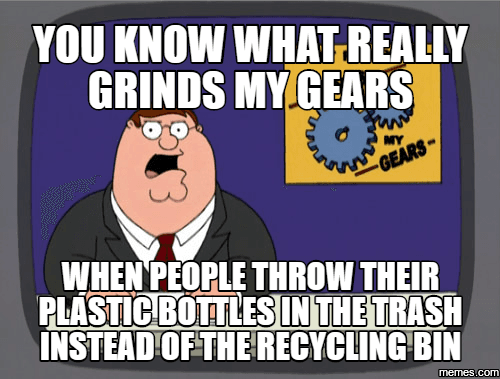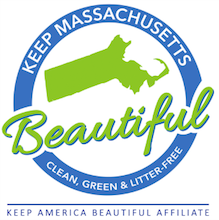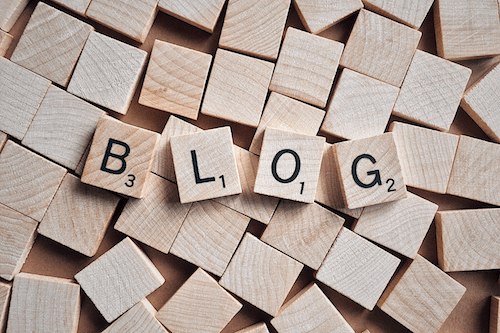
Earth Day (April 22) provides a fresh reminder of the vast number of environmental challenges facing our planet. These problems can feel overwhelming for many of us. Nevertheless, there are steps that we as individuals can take to protect Mother Earth and one of the easiest things we can all do is recycle often and recycle right.
Most people who recycle do so believing that the material they place in their recycling bin can easily be recycled through their community’s waste management program. However, some of what ends up in recycling bins cannot be recycled for a variety of reasons.
When non-recyclables are mixed in with recyclables, the recycling materials are considered “contaminated,” creating a whole host of challenges. For example, if food waste or broken glass is mixed in with paper, that renders the paper un-recyclable. High contamination rates also make it more expensive to process recycling materials, and that cost is passed on to all of us in the form of higher fees or higher local taxes.
To avoid these consequences, we all need to improve our knowledge about what is and what is not recyclable. The information in this post pertains to curbside, single-stream recycling programs in Massachusetts.
Single-stream recycling refers to programs in which you place all of your recyclables into a single recycling bin. The rules will be different in other states or in communities that host dual-stream recycling programs (which require you to separate different types of materials) or at recycling drop-off centers.
What Should You Recycle in Massachusetts?
There are four main categories of consumer recyclables—plastics, glass, metal, and paper.
Plastic containers include bottles, jars, tubs, and jugs (laundry detergent bottles, water bottles, milk jugs). Don’t worry about the number you may see on the plastic container—just focus on the shape.
Plastic containers should be emptied and rinsed and their caps should be reattached before being placed in your recycling bin. If plastic caps are separated, they will not be recycled, as they are too small for the machinery that sorts these materials.
Pro Tip: Do not put black plastic in your recycling bin. The optical sorters at material recovery facilities (MRFs) cannot read the codes on black plastic when it is placed on a black conveyor belt. Therefore, all of the black takeout containers many people place in their recycling bins end up in the trash. You may also want to suggest (politely, of course) that local restaurant owners and supermarket managers choose something besides black plastic for takeout and to-go containers.
Glass containers should also be emptied and rinsed with their caps replaced. Just as with plastics, this includes bottles and jars (wine bottles, pickle jars, etc.).
Metal containers should be emptied and rinsed before placing them in your bin. Metal containers include beverage and food cans (soda cans, pet food cans, soup cans).
Paper and cardboard should be free of any food, liquids, or other residues that could contaminate the recycling. All material should be emptied and flattened before being placed in your bin.
Pro Tips: There are two notable exceptions when it comes to paper recycling: coated cartons and shredded paper. Unless you live in western Massachusetts and your recycling goes to the Springfield MRF, you should not place coated cartons in your recycling bin. This includes milk cartons, ice cream cartons, or any paper that has a waxy coating, including many frozen food packages.
Shredded paper, while technically recyclable, is not recyclable in your curbside single-stream recycling system. These pieces of paper are so small that they adhere to other materials at the MRF and contaminate them. Check to see if a local shredding facility will accept your shredded paper.
What To Leave Out of Your Recycling Bin
It is just as important to know what you cannot recycle, as placing non-recyclables in your bin contaminates the materials and can even injure workers who work at recycling facilities.
In Massachusetts, recyclables should never be placed in plastic bags. All recyclables should be loose in the bin. Furthermore, plastic bags and plastic film should be left out. However, these materials can (and should) be recycled at local retailers. Most supermarkets have their own plastic film recycling program, with collection bins near the front of the store.
Pro Tip: Collect all of the plastic bags and plastic film you use in a separate bin under your sink. In addition to shopping bags, this includes bags that contain bread, muffins, fruit, as well as Saran wrap, overwrap from items like paper towels, toilet paper, and water bottle cases. Transfer these materials to a large trash bag and bring the whole collection back to your supermarket. Just be sure these materials are clean and dry.
Textiles cannot be recycled through your community’s waste management program. Instead, clothing and fabric of any kind should be donated to a local charitable organization, regardless of the material’s condition (unless wet and moldy). Some communities make it even easier by offering free curbside collection of textiles through companies like Simple Recycling and HELPSY.
Anything that could potentially get tangled during the recycling process should not be added to your bin. For example, hoses, wires, chains, string lights, and other ‘tanglers’ are not recyclable.
Lastly, styrofoam is not recyclable. According to Washington University, it can take up to 500 years to decompose, if at all! Styrofoam contains styrene, which has been deemed a "probable carcinogen" by the World Health Organization, especially when heated. For these reasons, styrofoam beverage cups should be avoided at all costs. Replace any styrofoam you’d typically use with reusable/refillable containers.
When In Doubt—Find Out
While it can be discouraging—and confusing—at first to see how many commonly used items cannot be recycled, MassDEP has a fantastic resource that you can consult to become an expert recycler. If you’re uncertain about whether an item is recyclable, visit RecycleSmartMA.org. With the Recyclopedia tool, you can search MassDEP’s vast database to get answers to your recycling questions and avoid contaminating your recycling.
For larger items, such as used furniture, electronics, sporting goods, etc., visit Beyond the Bin or Donation Town to find local organizations that will accept donations of these items. Or you can sell items on Facebook Marketplace or Craigslist or give them away in a local Buy Nothing group on Facebook. Just because an item can’t be recycled doesn’t mean it needs to end up in a landfill or an incinerator!
Maintaining Good Recycling Habits
Reading this article was a great first step toward becoming a better recycler. To retain all the knowledge you’ve learned, print and post the Smart Recycling Guide wherever you process your recyclables at home or at work.
If you want to test your own knowledge or that of your family, friends, or colleagues, take the Can You Recycle This? quiz. It is a quick two-minute quiz that tests your recycling knowledge and is a great resource if you are an educator or community member looking for an interactive recycling tool to add to your lessons and outreach.
If you’d like to help people in your community or company become better recyclers, request a free Talking Trash & Recycling presentation. Attendees learn ways to reduce the amount of trash they generate, improve their recycling habits, and make easy changes to lead a more sustainable lifestyle. This interactive program is delivered in 45 minutes, with 15-30 additional minutes for questions and answers at the end.


